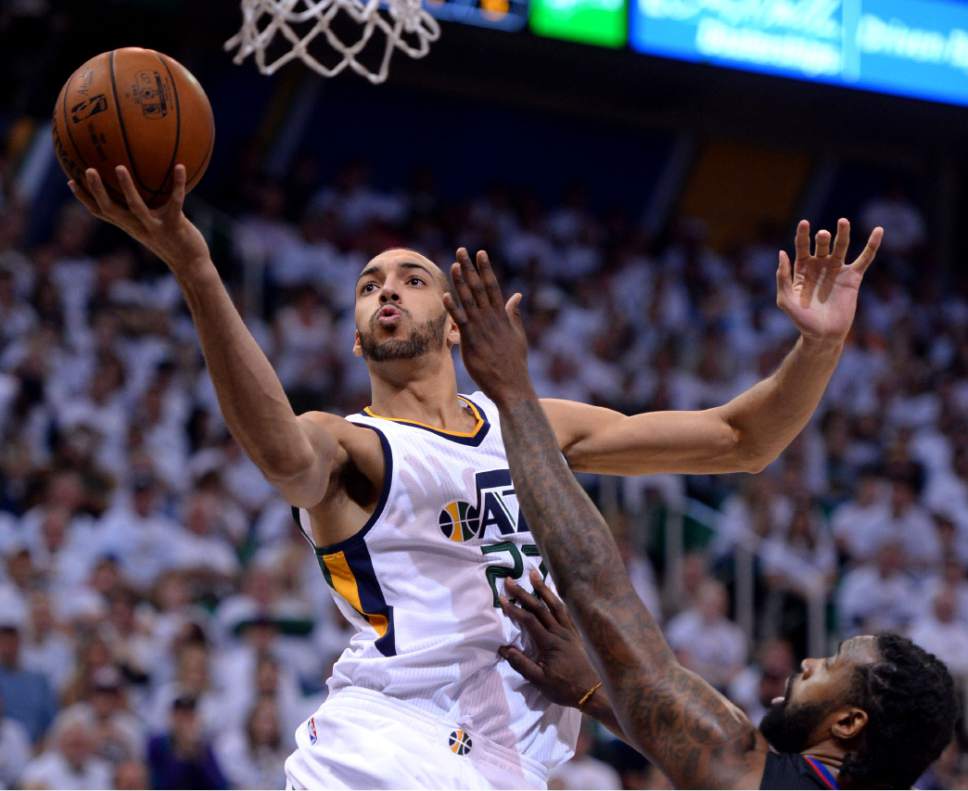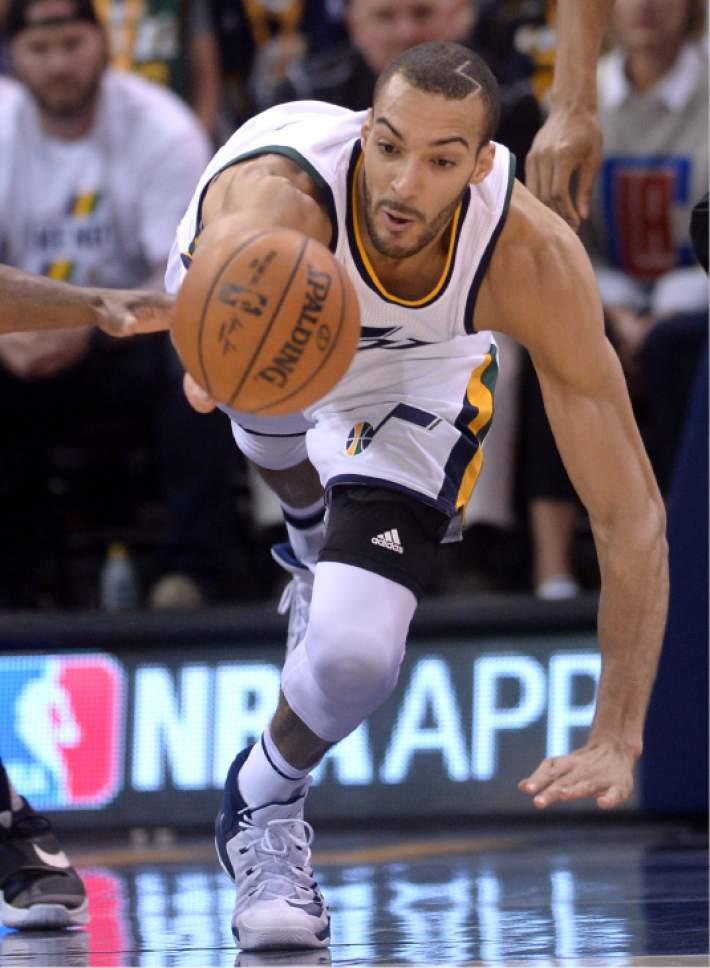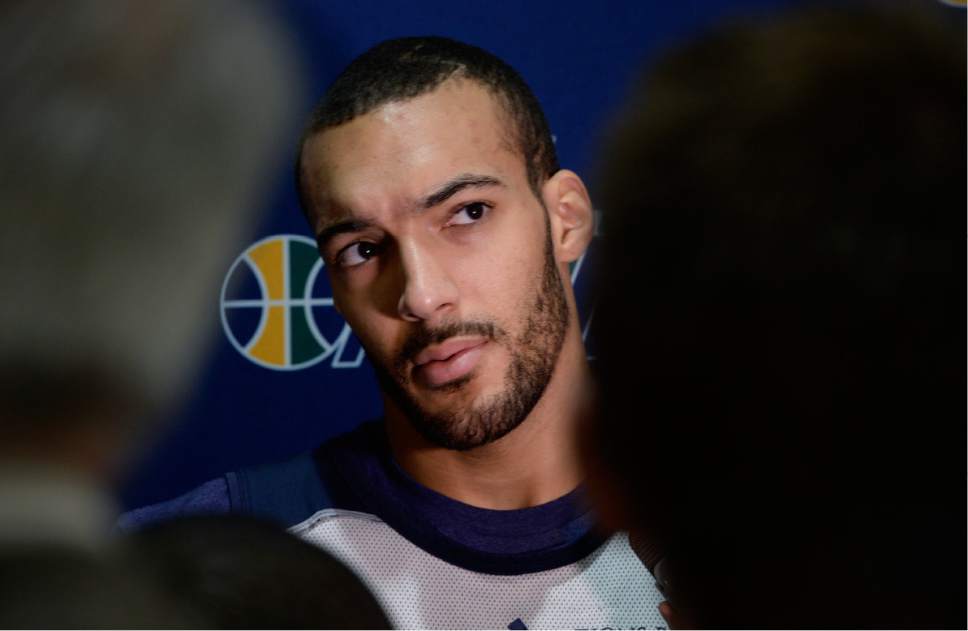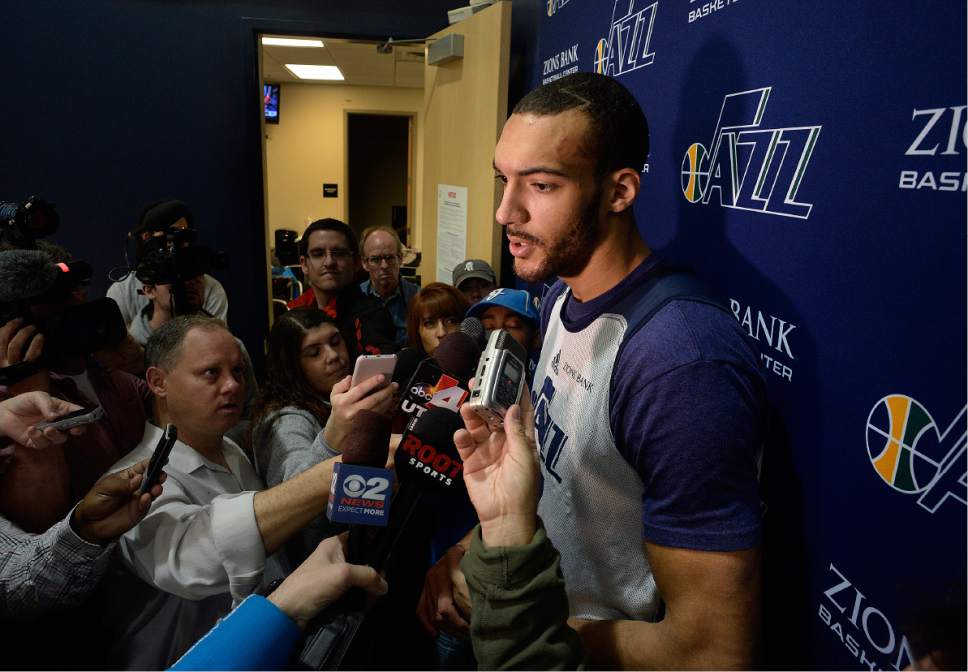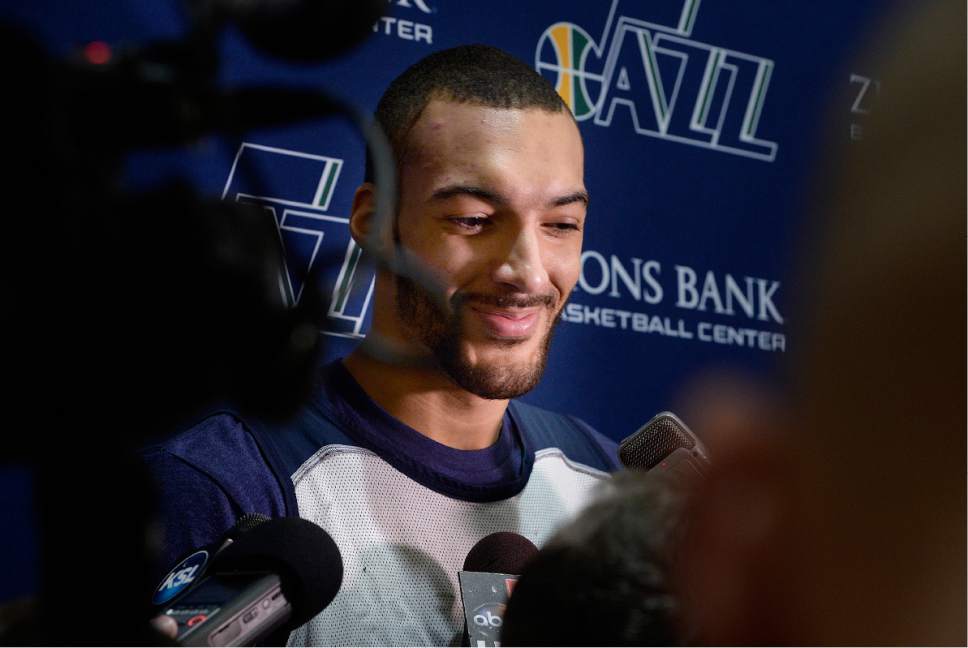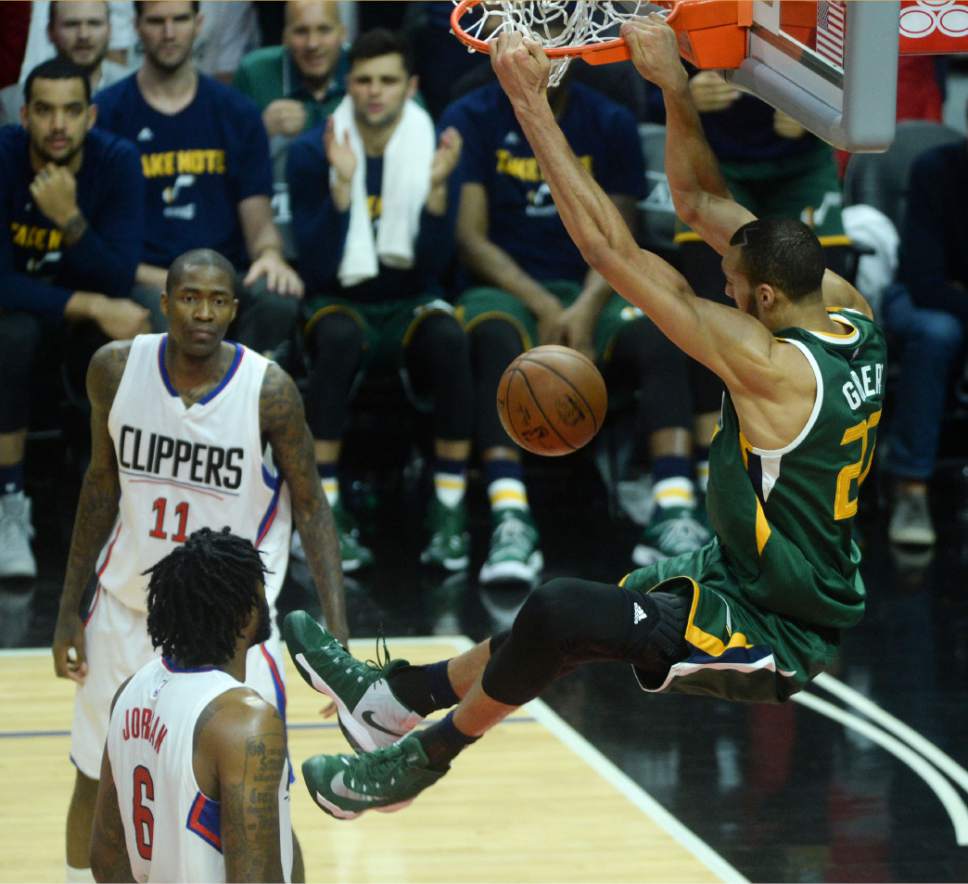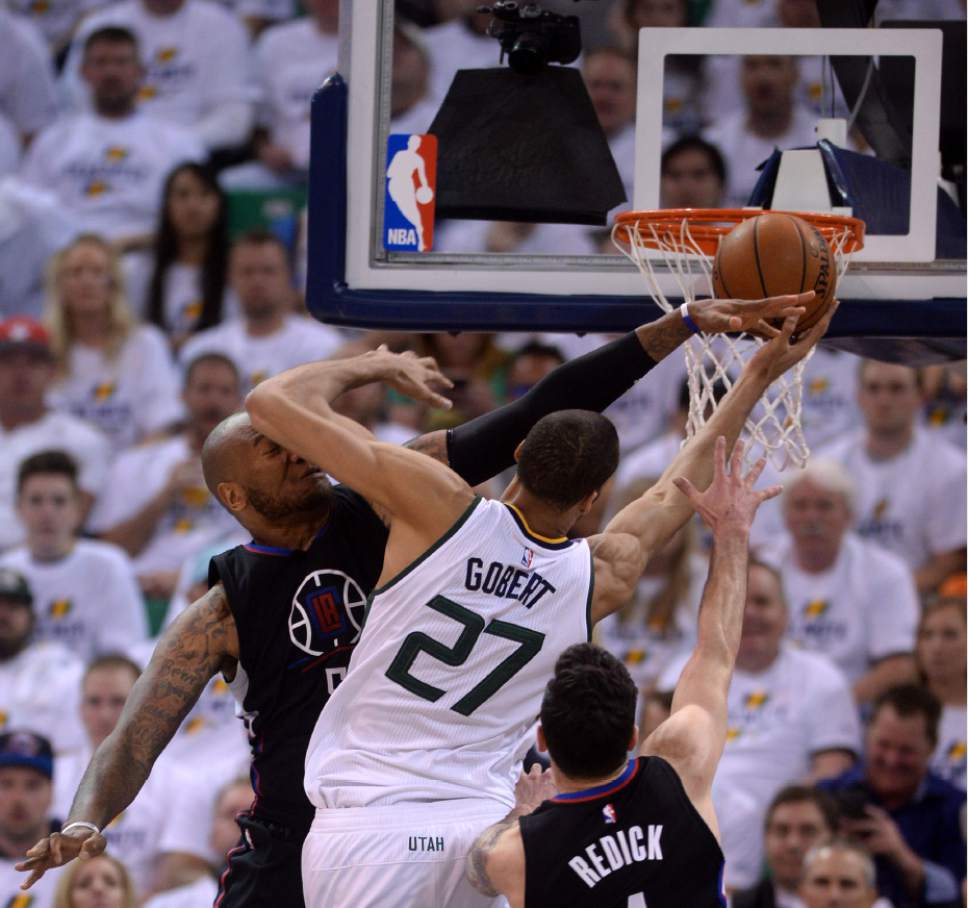This is an archived article that was published on sltrib.com in 2017, and information in the article may be outdated. It is provided only for personal research purposes and may not be reprinted.
When an errant shot went up and the ball came off the rim in the first three games of the Jazz-Clippers playoff series, Utah found itself in the midst of a fight it was ill-equipped for, and against the biggest, baddest dude on the court in DeAndre Jordan.
The past two games, Rudy Gobert hasn't merely provided run-of-the-mill reinforcements. He's been the equalizer.
Gobert, a 7-foot-1, 245-pound package of French fury on the glass, has swung the rebounding battle in the Jazz's favor since returning from a knee injury suffered in the first minute of Game 1. By evening out the advantage Jordan gave the Clippers on the boards as well as providing an interior presence in terms of both scoring and defense, Gobert has given the Jazz a wider margin for error offensively and erased a defensive matchup problem for the Jazz.
"Rudy erases a lot of mistakes that we have on the defensive end, and he cleans up a lot of bad offensive possessions by rebounding the ball," Jazz guard Rodney Hood said. "It's great, you know, just to have him back."
Gobert, a candidate for the NBA's Defensive Player of the Year award, led the NBA in blocked shots per game (2.6) and ranked third in rebounds per game (12.8). The Jazz couldn't reap the benefits of Gobert's presence for the first three games of the series due to a hyperextended left knee and bone bruise suffered 11 seconds into Game 1 of the series.
Gobert's absence left the 6-foot-11, 265-pound Jordan to roam a bit more freely on defense and dominate the interior while, offensively, he also muscled his way to the basket for offensive rebounds or to unleash rim-rattling dunks over defenders not able to match his size or athleticism.
The Clippers won the rebounding battle in each of the first three games, and Jordan averaged 14.3 boards to go along with 15 points per game.
Enter Gobert, and the Jazz have won the team rebounding battle in the Game 4 and Game 5 wins, and they have a total of 20 more boards than the Clippers in those two games.
When asked if Gobert's presence has made a difference in handling Jordan, Hood replied, "definitely" and pointed out that Gobert allows the Jazz not to have to devote multiple players to keep Jordan off the glass.
Gobert has shied away from any talk of one-on-one battles with Jordan. However, in two games since Gobert's return, Jordan's averages have dropped to 11 rebounds and 13 points per game, while Gobert has contributed 12 rebounds and 13 points per game in the Jazz's past two victories.
"We all know DeAndre Jordan is one of the best defensive rebounders in the game," Gobert said. "So yeah, it's always different when I'm there."
Because of their importance in multiple facets of the game, the Gobert-Jordan battles can be pivotal in any single game and are proving crucial to the outcome of the series.
"I just think that's a good matchup," Jazz coach Quin Snyder said. "If DJ was out, Rudy's numbers would go up. They're both just really good players. DJ was an All-Star this year. I can't say enough about who he is. Rudy is right there. That's one of the best matchups in the playoffs — those two guys going at it. The way that they both play, they gauge themselves by their teams, you know, team success."
Twitter: @LWorthySports —
Battle of the big men
Player Gms Pts. Reb. Blks.
Rudy Gobert 3 8.7 8.0 1.0
DeAndre Jordan 5 14.2 8.7 1.2


